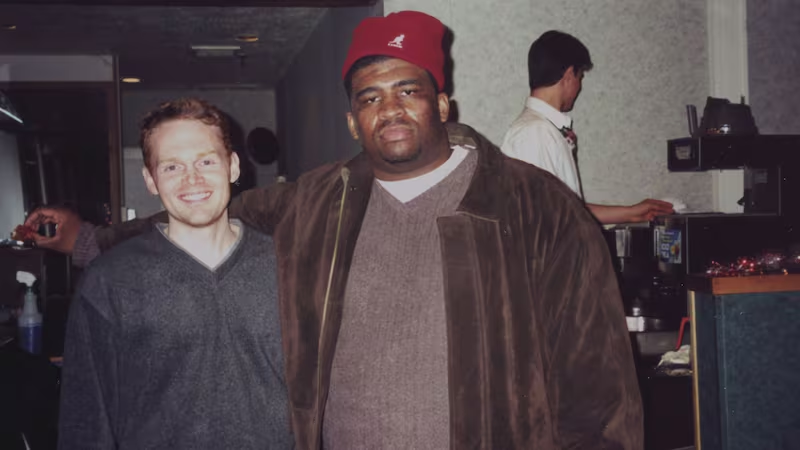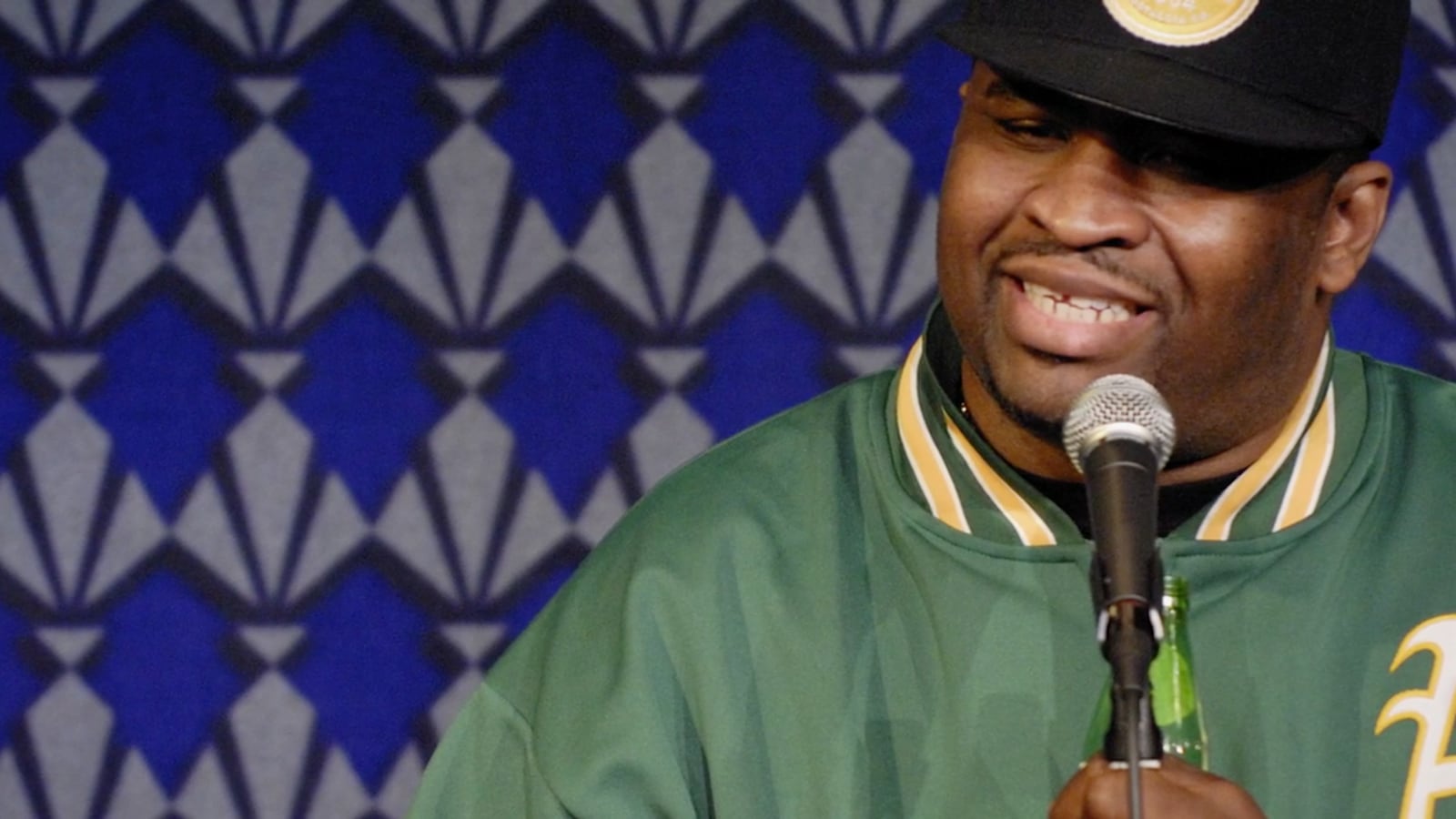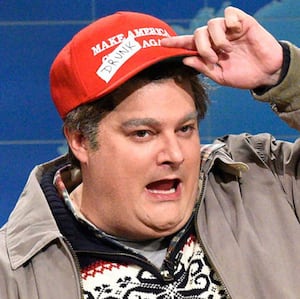When I hear comedians talk about “cancel culture” or the “PC police,” I often think back to the first time I saw him perform stand-up live. It was the fall of 2002 and I was among a few hundred college freshmen packed into an auditorium at Columbia University for a night of comedy.
To be perfectly honest, I don’t remember any of the jokes he told that night nearly two decades ago. They probably touched on race, gender, sexuality, and the type of broad stereotypes that made college students, myself included, uncomfortable before anyone had coined the term “woke.” But I’ll never forget the feeling I had when the audience of mostly white students turned on him, replacing nervous laughter with audible groans and eventually heckles.
And the comedian, who no doubt would have rather been performing 113 blocks south at the Comedy Cellar, turned on us just as fast. He started blaming the crowd for not laughing, telling us we needed to loosen up and generally roasting our overly sensitive asses.
“You’re not funny, dude!” an acquaintance of mine shouted at the stage as he grabbed his girlfriend’s hand and dramatically walked out of the theater. I stayed until the bitter end. His jokes weren’t all making me laugh necessarily, but I was fascinated by this man’s ability to command a room and not give a fuck what anyone thought.
His name was Patrice O’Neal and nine years later he would be dead.
Now, he’s the subject of a new documentary, premiering this Friday night on Comedy Central called Patrice O’Neal: Killing Is Easy, which reckons with the controversial legacy he left behind.
The film, artfully directed by Michael Bonfiglio—who was also behind comedian Gary Gulman’s excellent 2019 stand-up special The Great Depresh—follows O’Neal from his childhood growing up in Roxbury, Massachusetts, where his friends called him “Bruiser” due to his massive frame, through his early days performing comedy in Boston alongside contemporaries like Bill Burr and Dane Cook up until the height of his short-lived fame in the late 2000s and untimely death following a stroke in 2011.
The first thing we hear O’Neal say in the documentary is, “I don’t mind a little racism.” It’s the setup for a joke about modern-day slavery, but at the same time, it’s a telling window into his comedic persona. O’Neal loved to shock audiences upfront with an aggressively honest admission and then try to win them back with laughs.
“I’m a complete misogynist,” we see him tell a club crowd at another point. “I just think men, we’re better!” he adds. “And I’m not saying it like no ‘rah, rah’ shit. We’re just better.”
“I love making motherfuckers feel uncomfortable,” O’Neal says after things get palpably awkward in the room. In another set, he follows up a similar bit by castigating the women in the crowd for not finding him funny. “This is how we fucking feel!” he shouts at them. “We don’t like you! Because of the way you’re not laughing at me is why we don’t like you!”
As comedian Marina Franklin says in the film, “not a lot of people have patience” for that type of unabashed sexism in 2021. Colin Quinn, who prominently featured O’Neal on his Comedy Central series Tough Crowd, adds that his friend “took it too far all the time, but that was his charm.”
This defiant attitude towards his audience is perhaps best summed up by O’Neal in the exclusive clip below from the documentary in which he explains that he never viewed himself as an “entertainer.”
“I’m not a big fan of making people laugh every five fucking seconds,” O’Neal says. “I don’t even see myself as an entertainer. I realized I don’t really like entertaining people. I’m not going to do everything I can so you can have a good time.” He admits that he enjoys “running people out” of his shows, yelling, “Get out! Go!”
Another Boston comic, Denis Leary, conveys the origin of the film’s title, which really brings this point home. “Once you learn to kill as a comedian, killing is easy,” O’Neal would tell him. “But that’s not what he wanted. He wanted the truth.” Leary also reads this revealing quote from the comedian later in the doc: “I ain’t up there telling jokes. Fuck jokes. I’m up there explaining how I fucking feel. And a lot of times, how I feel is fucking complicated.”
All of this made him beloved among the many comics interviewed in the film—most of whom still readily admit that he could be an “asshole”—but ultimately hindered his ability to achieve the mainstream success of contemporaries like Kevin Hart or Dave Chappelle.
Beyond stand-up, there were small but memorable roles on shows like Arrested Development (where he played George Bluth’s cellmate T-Bone who briefly manned the infamous Banana Stand) and The Office (where he popped up a handful of times as Lonny from the warehouse). He had bit parts in Spike Lee’s 25th Hour and Chris Rock’s Head of State. The documentary posits that bigger acting opportunities didn’t emerge not because he wasn’t talented but because he was supremely difficult to work with.
“His thing was he didn’t like lesser talent telling him what to do,” The Office’s Craig Robinson explains with a laugh. “That didn’t sit well with him.”
It was around that time that O’Neal made a pilot for Comedy Central called Patrice O’Neal’s Guide to White People, which “turned out to be a disaster” in the words of Von Decarlo, who was engaged to the comedian at the time of his death and is also a producer of the documentary.
The series never made it onto the air, but O’Neal continued to paint his lack of success as a positive. He would tell interviewers that he didn’t want to be trapped in “golden handcuffs” and openly worried that if he got too famous he would attract the wrong kind of audience members to stand-up gigs who wouldn’t tolerate his edgy material.
The outsized attention that fame has brought to comedians like Chappelle, Hart, and others in the streaming comedy boom that O’Neal missed has been a double-edged sword. Millions of dollars from Netflix also comes with renewed scrutiny of old bits and attempts at cultural “cancellation” that have mostly amounted to nothing, but would have incensed O’Neal had he lived to see them.

Bill Burr and Patrice O'Neal back in the day
Comedy CentralHis crowning achievement as a comedian came in early 2011 when Comedy Central released what ended up being his first and last hour-long special Elephant in the Room. It contains jokes about wanting to sexually harass women that haven’t aged too well in our post-#MeToo moment, but also features transcendent runs that deftly force his audience to expose their own racism.
O’Neal says that he started contemplating his death at just 38 years old. “That’s relatively young, but in Black years I’m a 186 white man,” he joked once on stage. Less than a year after his big special was released, the comedian suffered a stroke that ultimately ended his life a week before his 41st birthday.
“He was just about to be one of the greats,” comedian Robert Kelly, perhaps O’Neal’s closest friend in the stand-up world, says near the end of the film. “Not that he isn’t, but he was about to be forever.”
We’ll never know if O’Neal would have evolved into the next Richard Pryor, as his friends thought he might, or if he would have continued to self-sabotage. But there is no doubt about the impact he made on everyone who knew him—or just saw him perform—in the short time he spent in the spotlight.
For more, listen and subscribe to The Last Laugh podcast.


